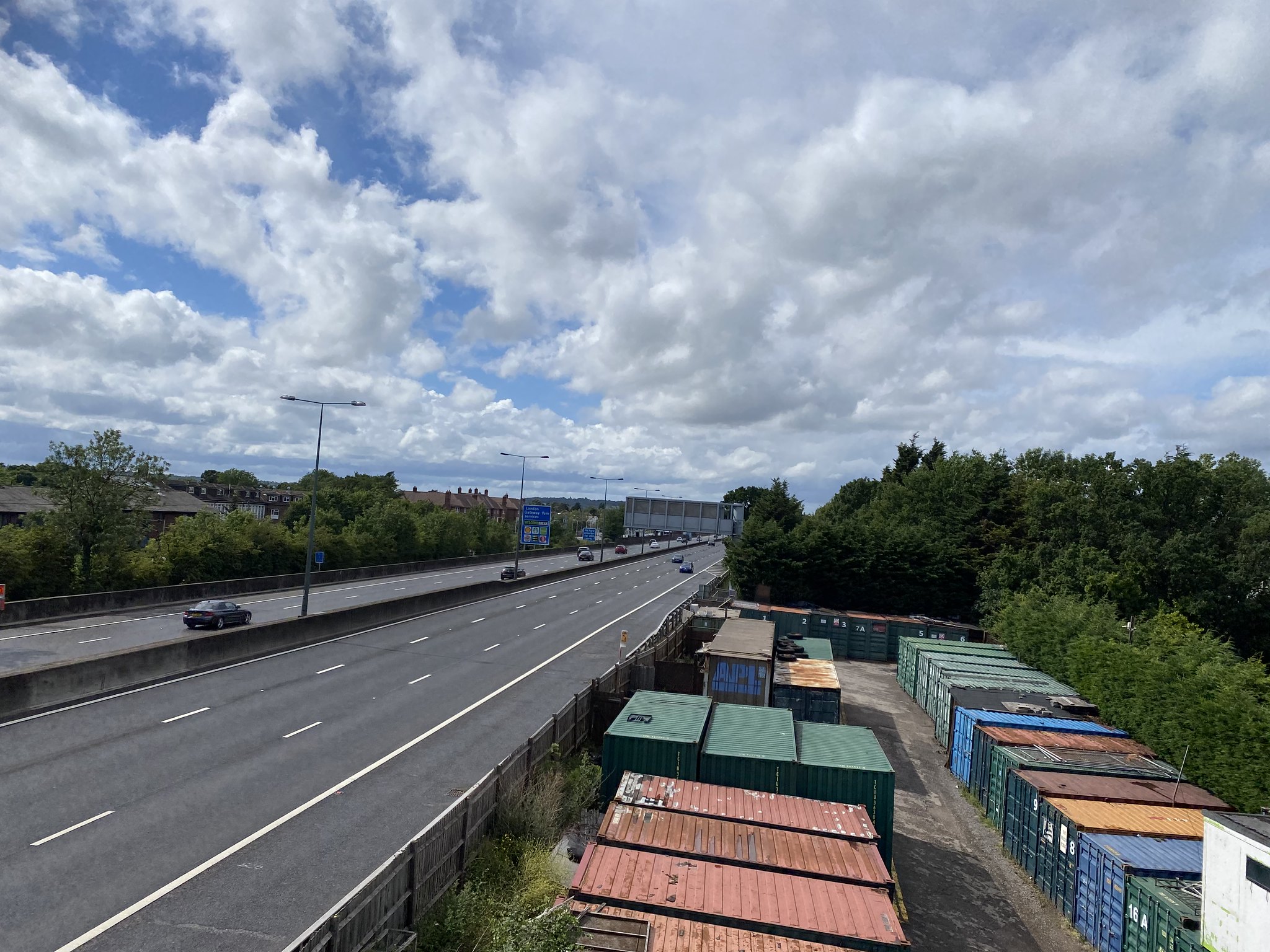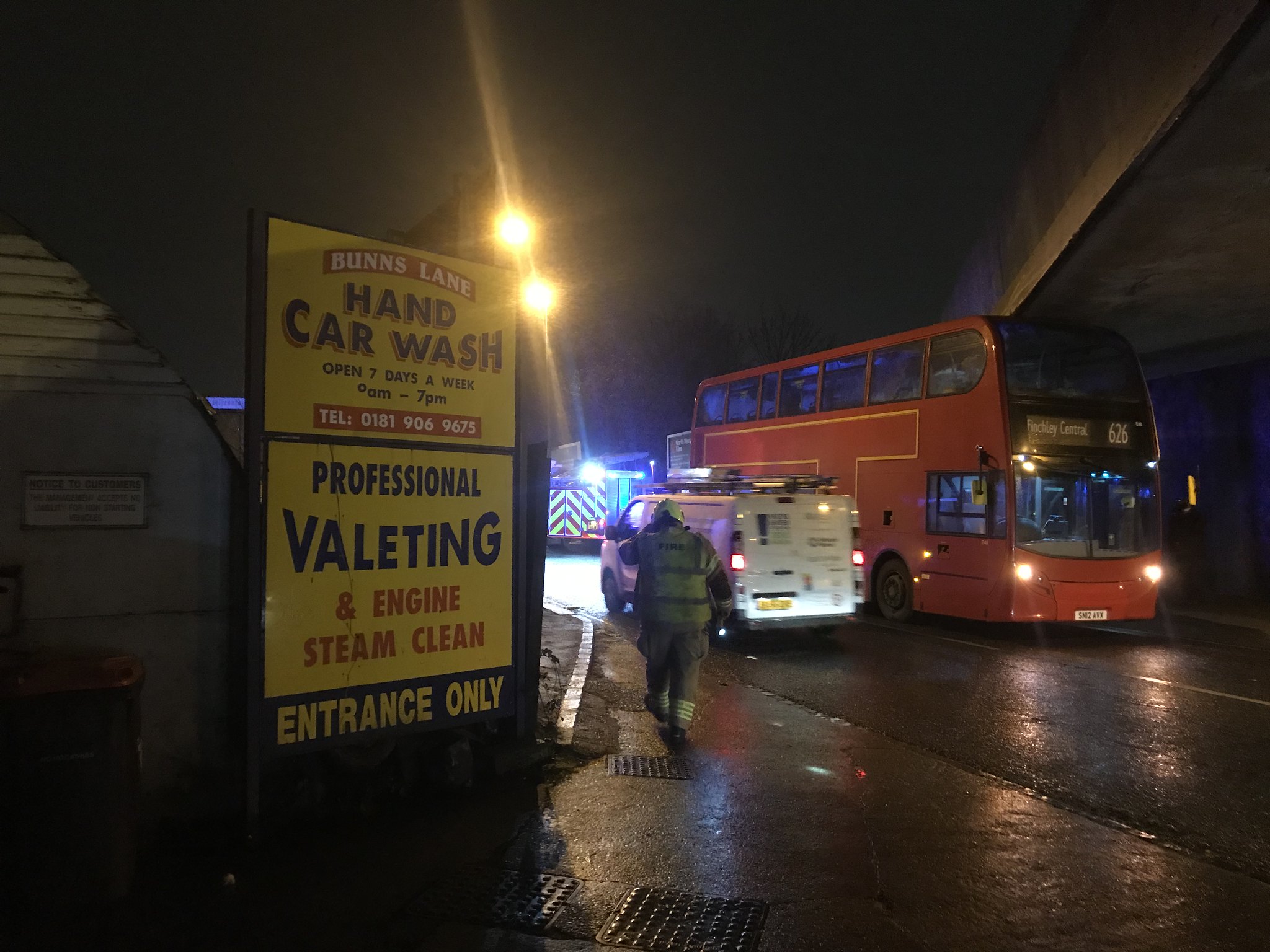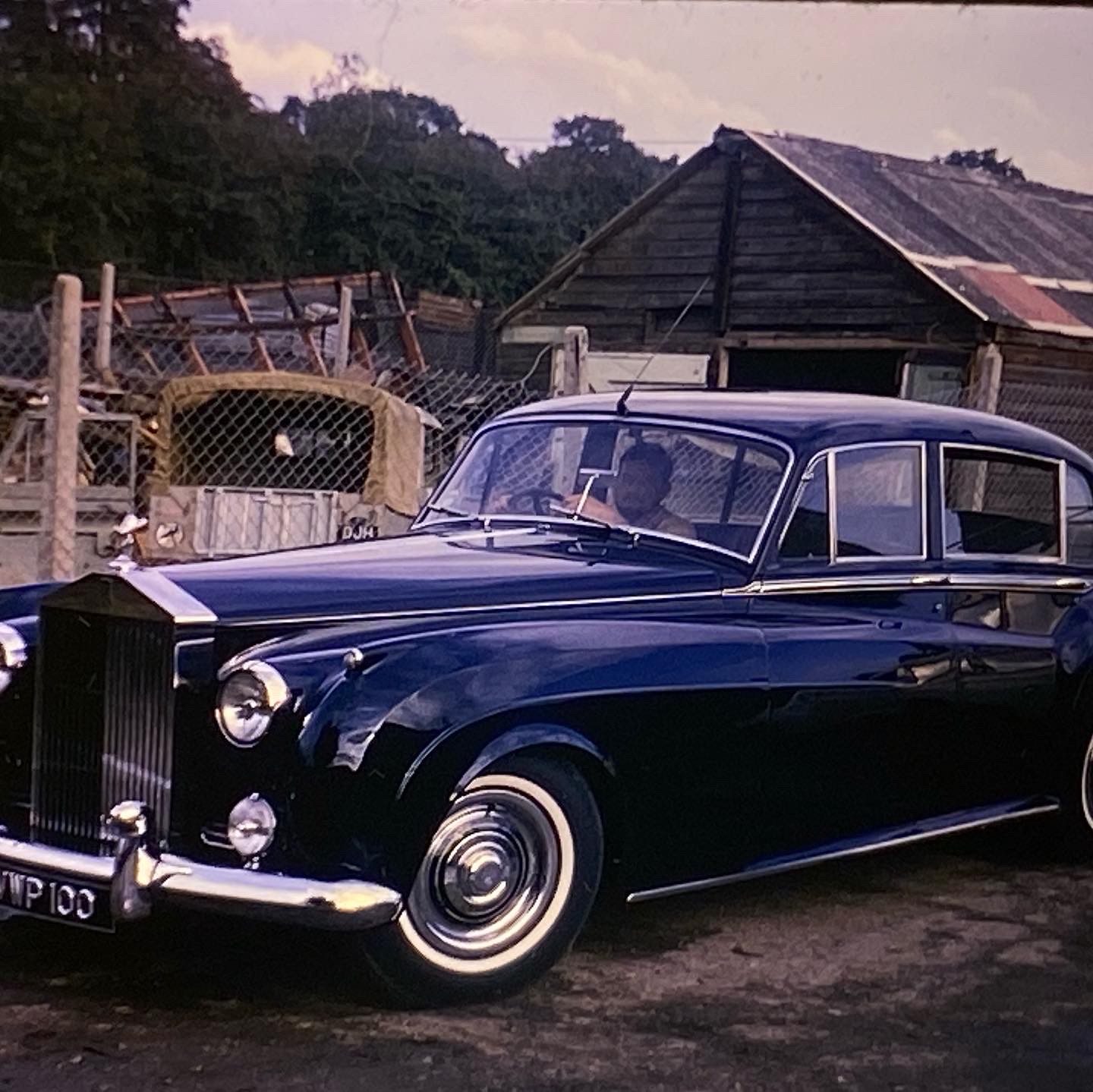Many people have been asking me recently about the demise of cash in society.
Whilst for many, the lockdown and usage of contactless for everything spells the demise of cash, the process has been going on for a very long time. The invention of the telegram was the start of the demise of cash. Banks soon figured out that money could be moved, without a physical transfer of cash taking place. Although this was a far cry from what we see now, perhaps surprisingly the principles of the cashless transaction were invented. I had to give a presentation a few years ago about the history of electronic payments, to an audience that was unfamiliar with the topic and the principles. To chart the journey, I used the story of my Father and his business career, to show how things have changed.
When he was demobbed from the RAF in 1946, he secured a job as chief pilot for John Howard Ltd. They were a construction company working building oil installations in the middle East. I discussed the job with him before he passed away in 1987. He explained that he had two jobs, one was ferrying VIP's, Surveyors etc around the sites and to various meetings. Whilst this was important, it wasn't his main function. This was to safely transport huge amounts of cash and gold between sites. Many of the sites had no road access, so if people were to be paid, they would be paid in cash and the cash had to be delivered. The same with suppliers etc. There were strict financial controls on how much money could be taken in and out of various countries. There was also huge potential for exploiting exchange rate differences between territories. Sometimes cash had been through three or four conversions before it was delivered. Whilst major financial centres such as New York and London had banks, telecoms etc and money could be wired, in less well developed places, cash was king. Where there was cash, there was people who wanted to nick it, so there was also a need for extensive security. My father got the job for three reasons. The first was that he was a qualified pilot. The second was that he was an ex RAF officer, so deemed trustworthy. The third was that he was a big chap who could look after himself. All of these were key considerations when ferrying large amounts of cash. He was on a very lucrative salary to ensure that he wasn't tempted to fly off into the sunset with the dosh.
When my mother tired of him only turning up to knock out another baby (her words), he set up a crash repair business in Mill Hill. He was very successful and soon employed a dozen workers. They were paid in cash on a Friday. None had bank accounts. Electricity and Gas were paid for at the utility company showrooms. Insurance payments were collected by the man from the Pru, who would turn up once a month to collect premiums. The only cashless transactions were cheque payments. As cars were expensive and only owned by the rich, my parents opened a bank account for the payments. These would be paid in on a friday and the cash withdrawn the following Friday, to pay staff.
The need for travellers and rich people to have access to funds unexpectedly in the late 1950's lead to the creation of credit and charge cards. The technology was all paper based. Participating merchants had vouchers and the card owner would have these 'swiped' and the embossed information would be transferred to the carbonised voucher. Cards such as American Express and Diners Cards were status symbols. The authorisation for small amounts was done by signature. For larger amounts a telephone call would be made to the card company. Vouchers would be paid in to the merchants bank and the card company would bill the card holder for the amount, which would be paid by card or cash at the bank.
This was pretty much the case from the late 1950's through to mid 1960's. round this time, the Bank of England and the UK's major banks also launched BACS. This was the first truly cashless banking system. The primary usage initially was to move payroll funds from companies to employees bank accounts electronically. BACS payments fell into three categories. Payments, used for payroll etc, Standing orders used by account holders to pay utility bills and later Direct Debits, where utilities could take cash out of customers accounts once a mandate had been signed. For large firms and organisations such as the Army, Ford, Barclays, British Leyland etc, this was a huge saving in costs. For the banks, it lead to a massive expansion in accounts. Companies would insist employees opened accounts and often do deals with banks to give sweeteners. Often the money would go in on a Friday and staff would troop off to the bank to withdraw it all immediately. Banks would charge people to look after their own money, which for some of the old school would not be happy, so sweeteners would be offered. For firms like my father, the expense of setting up a BACS system was prohibitive. For employees who wanted to pay the money into a bank, cheques were paid. Companies preferred this as there was less cost and risk. The traditional British workman didn't as he wanted his cash.
However in 1967, Barclays bank took the next step towards a cashless society (although it didn't really seem like that at the time). The biggest star in the country was Reg Varney, Reg from on the buses.
Barclays enrolled him to make the worlds first ATM withdrawal at their Enfield Branch. The system was very different. Barclays issued vouchers for £10 that could be withdrawn in exchange for cash. The ATM and the bank conducted a cashless transaction, but the end product was cash. The ability to get cash out of hours was a huge bonus.
 |
| Abbey National - One of the founders of the Link ATM Network |
As more people had accounts, the usage of cards increased. Initially most people had what was simply called an "ATM card". This could be used in your own banks ATM. By the 1980's banks reached arrangements with other banks. So Natwest users had access to Midland ATM's and Lloyds and Barclays did the same. In 1986, the
Link network was launched by a group of smaller banks and building societies. They reasoned that together, they had a network the size of the bigger banks. Soon, the big boys realised it was cheaper to belong to Link than to have their own private networks. Link became a massively successful network. It also gave access to foreign ATM's through a deal with the Royal Bank of Canada to the Time network in the USA. This meant that as an Abbey National Card holder, you could withdraw cash on holiday in the Florida. At the time this was quite revolutionary. I can remember telling my Father about it and he made a withdrawal at the moment the link was opened, being the first transaction over the network and beating the dignitary, who was still giving a speech ( I was working for Link at the time, so knew when the link was being brought up). He excitedly called me to tell me it worked. That was the last conversation I had with him, before he passed away.
Although Link made cash easy to get, it was clearly not something that contributed to a cashless society, but the technology that it used opened the floodgates. Although credit cards had been around for a long time, the technology that drove ATM's and the networks that had been set up, meant that it became economical to use cards in a paperless system. These systems were called Point of Sale systems (POS). Initially they were limited to big companies, petrol stations, supermarkets etc. People who could afford the large scale investment to develop the POS systems. Companies such as Visa and Access (remember them), launched debit cards. These allowed payments from cards to be taken directly from your current account, rather than going through a third party billing system. These cards used a fairly rudimentary security system, based on the encoding of your account details on a magstripe on the back of the card.
The next step was the development of chip and pin cards. For many users, there was initially little difference, but this technology, where the card actually has a computer chip on it, allowed the advent of contactless technology. Not too many people realise that when you tap, the transaction is checked against your bank account, to see if the card has been stolen or that you have sufficient funds.
The other major innovation was the advent of home computers in the mid 1980's. These enabled us to have home banking. These systems mean you can pay bills etc, from the luxury of your own home. No more queueing to pay in cheques. As these systems developed, we have seen less and less people using banks. As a business owner, who takes cash, we have to pay in cash on a weekly basis, as many musicians still operate in real money. Often, at the branch, it is only other businesses and people wanting foreign exchange that you see in branch.
Once parents figure out how to give toddlers pocket money, there is a good chance that the children born soon will never need do a cash payment in their lives.
That is the story of how we got to where we are. But there is far more to the matter. I firmly believe that most people, even those working in banks at a senior level don't really understand the monster they have created. Those who are savvy and know how to work the system can get interest free cash on interest holiday deals from card companies, can buy things fully insured by their credit card company, can get cash back on purchases through card incentive schemes and can get a great deal. Sadly many are like a relative of mine, who has a permanant £12,000 balances on their card, only paying the 27% interest. When I enquired why they didn't move the balance to an interest free card, I was told "it was too much hassle". They are paying over £3,000 a year to the card company in interest. To me that is insane. Loyalty to credit card schemes is to me the most crazy concept of all.
There is also a lot of talk of fraud and cyber crime. Again, this is something that few of us seem to really understand. I personally would advise that cash is spread around. We can never be entirely sure that an account is safe from hackers (or from the failure of the financial system). Therefore if we have multiple accounts, each of which delivers its own benefits, then we can minimise the risk of a fraudster cleaning us out. It is also worth knowing what company actually owns the bank you use. As RBS and Nat West are owned by the same company, if you have more than £85,000 in the two organisations, you are at risk if they fail. By having multiple accounts, if you get hacked, you will still have access to money.
Many conspiracy theorists believe that a cashless society is the ultimate aim of a big brother style government. Whilst the government likes the fact that money in the bank is traceable, it is extraordinarily naïve to believe that they could have orchastrated the series of events that have lead to the current situation. Having had some experience of government IT projects, I was shocked at how little of the governments IT policy is in any way thought through. Sadly I have signed non disclosure agreements so I can say no more, but if they had their act together, there are plenty of things that they would be doing around the area of benefit fraud etc that would give instant quick wins.
I was recently discussing this with a friend, who said they would not perform contactless transactions because they feared their privacy was compromised by 'the government knowing what they were spending their money on'. I found this to be hilarious, given that they had a smart phone and were logged into Google. Your phone has become a tracker beacon and your every move is monitored, so why worry whether someone might know you bought a tin of beans at Tesco's? If you are genuinely worried, go off grid and dump all of your technology. It amuses me that people don't realise that their iPhone could dob them in for speeding, if the govt really had their act together.
Going back to small business. Sadly my father passed in 1987, his business being sold when he retired in 1984. But I still run a business and employ 12 people. I have not paid my staff in cash for over 25 years. Last year 60% of payments were cashless. Since we reopened, this has increased to 95% (mostly vending machine takings now). My staff all have smartphones that they use for payments. All have bank accounts and use online banking.
So should you be worried about the evolution of a cash free society? I think that this is the wrong question. The question is whether you should be worried about the government misusing the opportunities a cashless society present. The answer to this is yes. In China we have seen the government using technology to effectively 'disappear' people's financial profile. This leaves them destitute. Do I think a British Conservative, Labour or Lib Dem government would do such things? I doubt it, but democracy is not a given. The only thing that does comfort me, is that we'd need a government run by people who really understood the technology before we really could see anything worrying. As for criminals. In 1984, my father was robbed by an armed gang picking up the cash wages from Lloyds bank in Mill Hill Broadway. Crime has always been with us. If someone is to nick the staff's wages, I'd rather they did it without hitting me on the head with a baseball bat. Crime will always be with us.
I don't often talk about my 'other career' here, but this is a subject in which I am something of an expert. Between 1983 and 2017, I worked as an It consultant specialising in banking payment systems. I started as my musical career had left me with huge debts and I wanted a lucrative job for six months to clear them. I was lucky to do a TOPS course (remember them) in Computer Operations and get a job with one of the UK's top IT companies, working in electronic payments. They supplied the software that ran the Link ATM network. I transferred to BT, who managed the network in 1986, to set this up, working as the first technical support manager on the project. I then got a job at TSB bank working on the CHAPS system (CHAPS is the system used to make instant, large value cash payments in the UK most people would know it from house purchases). After a couple of years there, I fancied working locally and got a job at BACS, who manage standing order payments and direct debits. They . From there I went to Streamline (now part of World Pay) working on credit and debit transactions and also Natwest, overseeing their project to join the LINK ATM network. After that, I joined JP Morgan, who run the Post Office Cardholder Account scheme for the Post Office. This replaced bank giro cheques with a card based electronic payments system. In short, I've worked on all of the major cash transmission networks in the UK.












